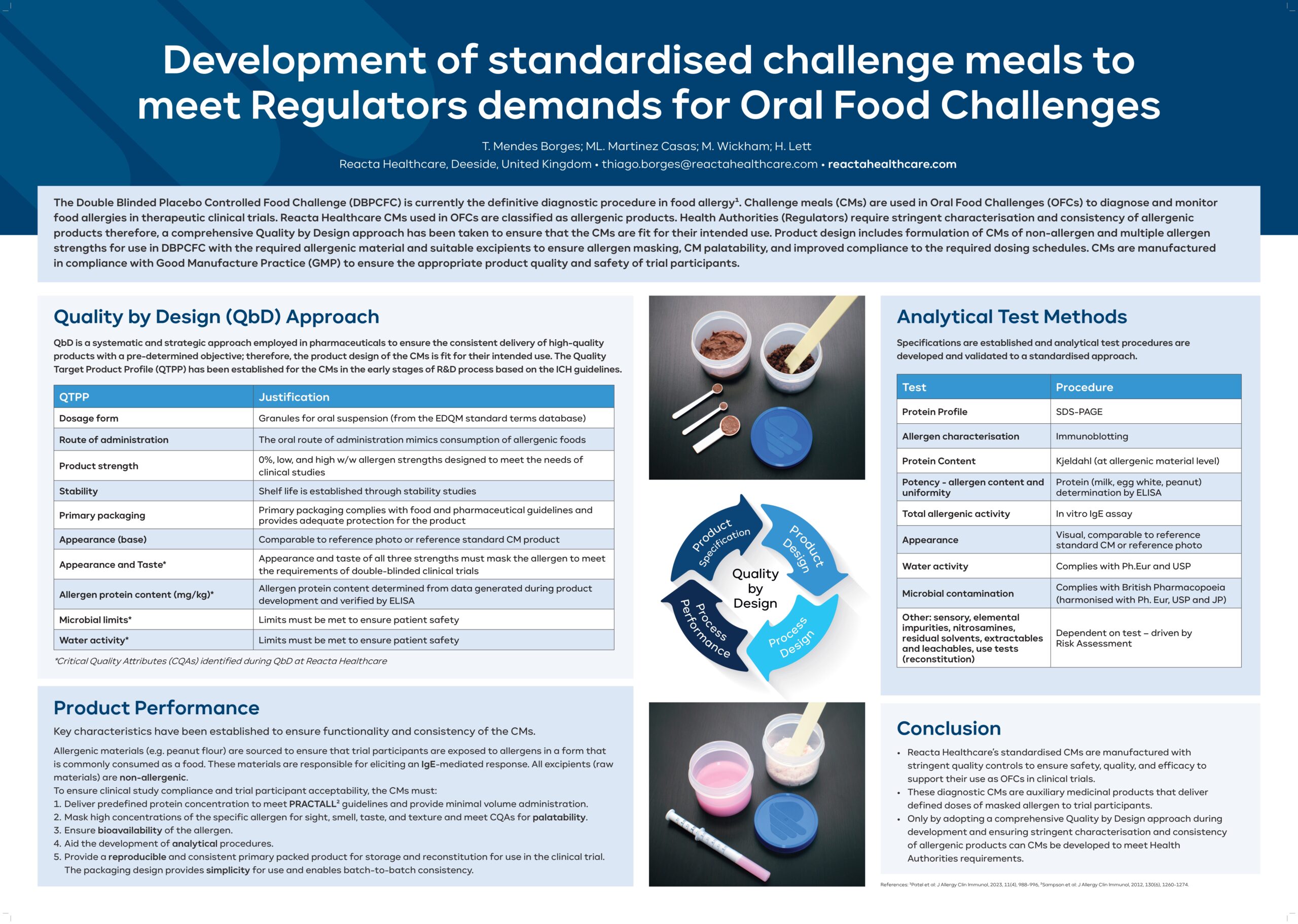Development of standardised challenge meals to meet Regulators demands for Oral Food Challenges
T. Mendes Borges; ML. Martinez Casas; M. Wickham; H. Lett
Our challenges meals (CMs) are used in oral food challenges to support clinical trials, they consist of 3 strengths, a low and a high strength allergen product and importantly a 0% non-allergen CM. The 0% can be used in the placebo arm of a blinded placebo controlled randomised clinical trial.
To ensure safety, quality, and efficacy we have developed these using the Quality By Design (QbD) approach.
Standardising the CMs means that we can meet more stringent regulators demands, where there has been a lot of focus on recently.
What is the QbD approach and why is it so important?
This approach means you predetermine all the requirements for the challenge meal before starting the formulation work. This allows you to develop the product with the required quality target product profile and critical quality attributes, therefore the developed product is fit for its intended use.
For example, the 3 strengths must be comparable in terms of flavour, appearance, and texture, whilst ensuring the allergen remains masked. This is important, neither the the clinician nor the participants are not aware if they are using the non-allergen or allergen containing challenge meal. The masking also reduces the chance of a psychosomatic response in participants if they think that they can taste, see or smell the allergen.
In the next stage of the process, analytical test methods were developed and validated to make sure the product meets the established specifications adhering to current guidelines.
In addition stability studies are conducted to determine the shelf life of the CM.
To conclude, by using the QbD approach, standardised CMs have been developed meeting more stringent health authority’s requirements.
CLICK TO ENLARGE

